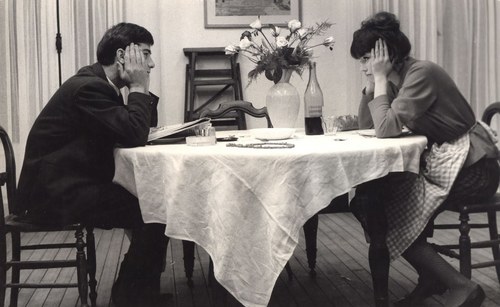
Who Pays for a Divorce? The Question Every Couple Asks After Deciding to End Their Marriage
I’ve helped countless couples get married and divorced over the past two decades. People enter marriages for any number of reasons and leave them the same way. Some of the people I meet are simply thinking about getting a divorce. Others are already separated, looking to dot the I’s and cross the T’s. And when it comes to divorce, a question that pops up again and again in almost all cases is this: how do legal fees get paid to divorce attorneys? Or rather, who pays for a divorce? This is no wonder. As you transition from one household to two, there are bound to be plenty of changes, some of which cost money. The sooner you’re able to wrap your head around these changes, the sooner you can move forward, turning the page on this chapter of your life and starting the next.
There is no one-size-fits-all approach for how to pay legal fees. The more questions you ask your lawyer and the other experts around you, the more you’ll be able to make the best choice for your unique situation. Typically, the bulk of the payments get withdrawn from either joint funds or requested from the “monied” spouse. (In non-legal terms, that generally means the spouse with the larger income.) Yet, the law provides no definition of the phrase “monied spouse,” which may complicate matters when it comes to who pays for a divorce.
Payment of legal fees is first brought up when a client signs a retainer agreement with her attorney. The retainer agreement outlines the scope of the attorney’s representation and any payments, including an initial deposit. The initial retainer is usually paid by check from joint funds or placed on a marital/personal credit card.
If you want the monied spouse to pay for legal fees, or if you have other questions about who pays for a divorce, make sure you mention that to the lawyer you hire.
Here are a few good questions you can ask when interviewing lawyers:
- How much is the lawyer’s retainer, and how much do they charge per hour?
- If the monied spouse is responsible for legal fees, when will the spouse make that payment?
- What other costs should I be aware of?
Authority of the court to decide who pays for a divorce
Each state has different divorce laws. For example, New York gives courts the authority to award legal fees when necessary. An award of legal fees isn’t automatic. If the court finds it necessary, they order the monied spouse to make payments directly to their partner’s attorney. In any case, it’s rare for the monied spouse to be responsible for 100 percent of their spouse’s legal fees. Prepare yourself for any possibility.
Application to the court to award payment of legal fees
By now, you’re probably asking yourself, how exactly does one get an award for legal fees? At any time during the case, you can fill out an application and submit it to the court. In this application, you must explicitly request an award for legal fees. You must submit quite a bit of financial documentation along with the application.
While awarding legal fees isn’t automatic in New York, state law does attempt to level the playing field for both partners. The law assumes that giving the less monied spouse an award of legal fees will do so. It falls to the monied spouse’s legal team to argue that such an assumption is incorrect. They’ll have to prove that an award of legal fees isn’t necessary. (For example, the less monied spouse might have assets but not income.)
The court’s decision to award legal fees
Awarding legal fees to the less monied spouse means both partners can find adequate representation. The courts review both partners’ financial circumstances. They also review whether one partner has prolonged litigation. Courts don’t need proof of poverty, and they don’t force one partner to exhaust all financial resources before granting an award. In fact, the trial courts have a fair amount of freedom to determine whether an award is necessary.
The calculation of legal fees
Once the court has decided to award legal fees, it must determine what amount to award. The court reviews many factors, including your financial ability to pay, the nature of the proceedings, and the difficulty and result of the case. The court also reviews the attorney’s experience and performance, as well as the fees typically charged for legal services in the area.
So remember, when it comes down to who pays for a divorce, there is no one-size-fits-all approach. Yes, courts often require that the monied spouse pay the legal fees of the less monied spouse to ensure they can defend themselves. But there are no guarantees. As frustrating as it may be, any legal fees awarded to either partner, like other assets and funds, is subject to reallocation at the case’s close.
For more than 18 years, Nina Epstein and law partner Elyse Goldweber have helped individuals and families in the New York City metropolitan area with the full range of legal issues associated with creation and dissolution of personal unions—including divorce, separation, and child support, as well as employment challenges and related business matters.
Since 2012, SAS for Women is entirely dedicated to the unexpected challenges women face while considering a divorce and navigating the divorce experience and its confusing afterward. SAS offers women six FREE months of email coaching, action plans, checklists and support strategies for you, and your future. Join our tribe and stay connected.







Leave a comment or thought.
We`d love to hear what you are thinking after reading this post.